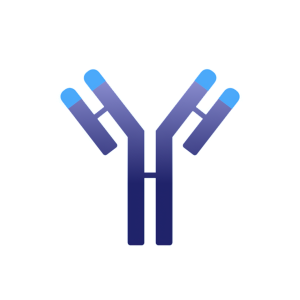Immunovant Unveils Durability and Treatment-Free Six-month Remission Data with Potential to Change Treatment Paradigm for Uncontrolled Graves' Disease Patients
Rhea-AI Summary
Immunovant (NASDAQ: IMVT) has announced groundbreaking six-month remission data for its Graves' disease treatment. In a proof-of-concept study, ~80% (17/21) of patients maintained normal thyroid function six months after stopping batoclimab treatment. Notably, ~50% (8/17) of responders achieved anti-thyroid drug (ATD) free remission.
The study evaluated batoclimab with a 24-week treatment period using a dose step-down protocol (680mg weekly for weeks 0-12, followed by 340mg weekly for weeks 12-24). The company is now advancing with two potentially registrational trials for its lead compound IMVT-1402, testing a 600mg dose for 52 weeks without step-down, with topline results expected in 2027.
Positive
- First-ever potentially disease-modifying therapy for uncontrolled Graves' disease
- High response rate with ~80% of patients maintaining normal thyroid function 6 months post-treatment
- ~50% of responders achieved complete remission without requiring anti-thyroid drugs
- Safety and tolerability consistent with previous studies
- Two registrational trials currently enrolling with potential for FDA approval
Negative
- Long timeline to market with topline results not expected until 2027
- Study conducted with first-generation drug (batoclimab) rather than lead compound IMVT-1402
- Relatively small sample size in proof-of-concept study (21 patients)
News Market Reaction – IMVT
On the day this news was published, IMVT gained 10.82%, reflecting a significant positive market reaction. Argus tracked a peak move of +8.5% during that session. Our momentum scanner triggered 25 alerts that day, indicating elevated trading interest and price volatility. This price movement added approximately $290M to the company's valuation, bringing the market cap to $2.97B at that time. Trading volume was above average at 1.7x the daily average, suggesting increased trading activity.
Data tracked by StockTitan Argus on the day of publication.
- First-ever potentially disease-modifying therapy for uncontrolled Graves’ disease patients
- Of 21 patients who entered the six-month off-treatment follow-up period, ~
80% (17/21) demonstrated response, resulting in normal thyroid function (T3 and T4 less than the upper limit of normal) at the end of the six-month follow-up period - Of the 17 responders to therapy, ~
50% (8/17) achieved anti-thyroid drug (ATD) free remission at six months following end of batoclimab treatment - Two potentially registrational trials for IMVT-1402 in Graves’ disease are currently enrolling with topline readouts expected in 2027
- Roivant to host investor call to discuss these updates today, September 3, 2025, at 4:30 p.m. EDT
NEW YORK, Sept. 03, 2025 (GLOBE NEWSWIRE) -- Immunovant, Inc. (Nasdaq: IMVT), a clinical-stage immunology company dedicated to enabling normal lives for people with autoimmune diseases, today shared an abstract with six-month off-treatment data in uncontrolled Graves’ disease (GD) patients treated with batoclimab for 24 weeks, to be presented at the 2025 Annual Meeting of the American Thyroid Association (ATA) on September 11, 2025.
“These novel and encouraging results support FcRn blockade as a potentially effective mechanism for the treatment of Graves’ disease, with the six-month remission data providing evidence of potential disease modification,” said George Kahaly, M.D., Ph.D., Lead Principal Investigator.
“We are incredibly excited to present these remission data demonstrating strong durability of response and ATD-free remission in previously uncontrolled patients off-treatment for six months,” said Eric Venker, M.D., Pharm.D., CEO of Immunovant. “We believe these data have the potential to be transformative for patients and practice-changing for physicians, if approved by FDA, by addressing a significant unmet need in Graves’ disease.”
Graves’ Disease Proof-of-Concept Study
Six-month off-treatment data was generated from a proof-of-concept study of batoclimab in Graves’ disease. Batoclimab is Immunovant’s first generation fully human monoclonal antibody targeting FcRn. The study included a 24-week treatment period with a dose step-down (Weeks 0-12 at 680 mg weekly (QW) subcutaneously (SC) and Weeks 12-24 at 340 mg QW SC), followed by a 24-week off-treatment follow-up period. The study included patients with active Graves’ disease as documented by presence of elevated thyrotropin receptor autoantibodies (TRAb) and hyperthyroid despite ATD therapy. The key endpoint of the study is the proportion of participants who achieve normalization of free triiodothyronine (T3) and free thyroxine (T4) or have T3 / T4 below the lower limit of normal (LLN) at Week 24, without an increase in ATD dose from baseline.
Graves’ Disease Six-month Remission Data
25 patients were enrolled in the treatment period with 21 patients entering the off-treatment 24-week follow-up period to be assessed for remission:
- At Week 48, or the end of the six-month follow-up period (patients off-treatment for 24 weeks), ~
80% (17/21) patients maintained T3/T4 values ≤ upper limit of normal (ULN), indicating strong durability of response through six months off treatment - Of these 17 patients, ~
50% (8/17) were in ATD free-remission and an incremental ~30% (5/17) were on ATD doses of 2.5 mg/day following six months off treatment, even with batoclimab’s suboptimal step-down dosing design during the treatment period - Safety and tolerability were observed to be consistent with prior batoclimab studies
IMVT-1402 Registrational Trial Design
Two potentially registrational trials of Immunovant’s lead compound IMVT-1402 in Graves’ disease will evaluate 600 mg dose for up to 52 weeks without a step-down in dose.
The two potentially registrational global trials for IMVT-1402 in Graves’ disease are currently enrolling with topline readouts expected in 2027.
Investor Conference Call Information
Roivant will host a live conference call and webcast at 4:30 p.m. EDT on Wednesday, September 3, 2025, to discuss these Immunovant data. To access the conference call by phone, please register online using this registration link. The presentation and webcast details are available under “Events & Presentations” in the Investors section of the Roivant website at https://investor.roivant.com/news-events/events. The archived webcast will be available on Roivant’s website after the conference call.
About Immunovant, Inc.
Immunovant, Inc. is a clinical-stage immunology company dedicated to enabling normal lives for people with autoimmune diseases. As a trailblazer in anti-FcRn technology, the Company is developing innovative, targeted therapies to meet the complex and variable needs of people with autoimmune diseases. For additional information on the Company, please visit immunovant.com.
Forward-Looking Statements
This presentation contains forward-looking statements for the purposes of the safe harbor provisions under The Private Securities Litigation Reform Act of 1995 and other federal securities laws. The use of words such as "can," “may,” “might,” “will,” “would,” “should,” “expect,” “believe,” “estimate,” “design,” “plan,” "intend," "anticipate," and other similar expressions are intended to identify forward-looking statements. Such forward looking statements include Immunovant’s expectations regarding the clinical and therapeutic benefits of its product candidates, including durability of response, efficacy, tolerability and the potential for disease modification and first-in-class potential; patient enrollment, timing, design, progress, scope and results of its existing and planned clinical trials, including the potential registrational trials for IMVT-1402 in Graves’ disease and whether the trial designs will result in improved efficacy data; future development of IMVT-1402 and batoclimab, including the timing and likelihood of expansion into additional indications; the evolution of the treatment paradigm for Graves’ disease in North America; the size and growth of the potential markets for Immunovant's product candidates and indication selections, including any estimated market opportunities; expectations regarding the receipt of regulatory approval for its product candidates; and whether, if approved, IMVT-1402 or batcolimab will be successfully distributed, marketed or commercialized. All forward-looking statements are based on estimates and assumptions by Immunovant’s management that, although Immunovant believes to be reasonable, are inherently uncertain. All forward-looking statements are subject to risks and uncertainties that may cause actual results to differ materially from those that Immunovant expected. Such risks and uncertainties include, among others: initial results or other preliminary analyses or results of early clinical trials may not be predictive of final trial results or of the results of later clinical trials; results of animal studies may not be predictive of results in humans; the timing and availability of data from clinical trials; the timing of discussions with regulatory agencies, as well as regulatory submissions and potential approvals; the continued development of Immunovant’s product candidates, including the timing of the commencement of additional clinical trials; Immunovant’s scientific approach, clinical trial design, indication selection, and general development progress; future clinical trials may not confirm any safety, potency, or other product characteristics described or assumed in this presentation; any product candidate that Immunovant develops may not progress through clinical development or receive required regulatory approvals within expected timelines or at all; Immunovant’s product candidates may not be beneficial to patients, or even if approved by regulatory authorities, successfully commercialized; the effect of global factors such as geopolitical tensions and adverse macroeconomic conditions on Immunovant’s business operations and supply chains, including its clinical development plans and timelines; Immunovant’s business is heavily dependent on the successful development, regulatory approval and commercialization of batoclimab and IMVT-1402; Immunovant is in various stages of clinical development for IMVT-1402 and batoclimab; and Immunovant will require additional capital to fund its operations and advance IMVT-1402 and batoclimab through clinical development. These and other risks and uncertainties are more fully described in Immunovant’s periodic and other reports filed with the Securities and Exchange Commission (SEC), including in the section titled “Risk Factors” in Immunovant’s most recent Quarterly Report on Form 10-Q for the quarter ended June 30, 2025, filed with the SEC on August 11, 2025, and Immunovant’s subsequent filings with the SEC. Any forward-looking statement speaks only as of the date on which it was made. Immunovant undertakes no obligation to publicly update or revise any forward-looking statement, whether as a result of new information, future events or otherwise.
Contacts:
Investors
Keyur Parekh
keyur.parekh@roivant.com
Media
Stephanie Lee
stephanie.lee@roivant.com








